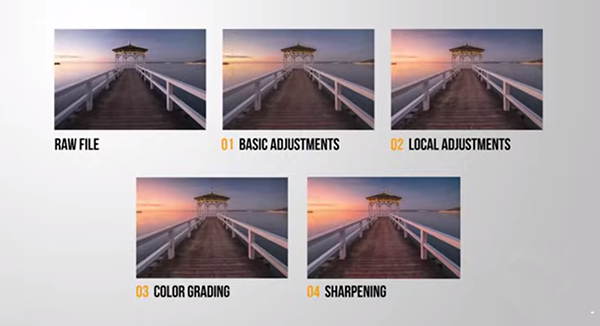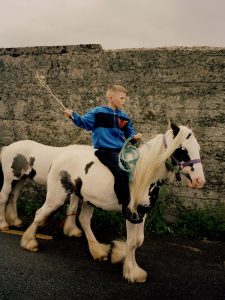
All frequent Shutterbug fans are familiar with the powerful tutorials we post regularly from the popular PHLOG Photography YouTube channel—each devoted to a specific post-processing task. Today’s episode is a bit different because it reveals a foolproof workflow, rather than a singular technique, that’s super effective for editing just about every image you shoot.
Instructor Christian Mohrle is a notable German landscape photographer whose remarkable images owe much of their impact to the Lightroom method he developed for enhancing photos to perfection while retaining a realistic look. And the good news is that his four-step process can be emulated with any Raw editor you use.
If you’re still uncertain about the benefits of shooting in Raw, this 17-minute lesson should set you straight. Mohrle provides a link to today’s demonstration image in the description beneath the video so you can follow along and experiment with his precise workflow as it’s explained in detail.
Mohrle’s first step with all of his edits is to make several basic adjustments that are global in nature—meaning they affect the entire image at once. These preliminary enhancements vary from one photo to the next depending upon the specific mood and look you want to convey. It’s also important to make these simple modification in the order that Mohrle suggests.
These global enhancements can include everything from lens corrections to remove chromatic aberration, cropping and straightening, and the initial adjustments to exposure. Mohrle also selects the proper Profile for the task at hand, typically changing it from Adobe Color to Adobe Landscape. He also refines White Balance and addresses any basic color problems.
The second step of the process involves using Masks to make selective adjustments as needed to different areas within the frame. The is where he achieves a perfect balance between highlights and shadows, color temperature, and various colors, and adds any special effects like a sun glow in one portion of the sky.

Next comes a comprehensive color-grading step to further refine the tones in a way that will often turn a good shot into a great one with maximum impact. Sometimes Mohrle is after a vibrant effect in which colors really pop, while other times his goal is a rather dark and moody look that evokes a sense of drama or foreboding.
At this point the image is almost there, at which point Mohrle turns to very careful sharpening if the image is a bit soft. Step four involves switching over to Photoshop for a bit of cleanup and, in this case, “filling the gap” that resulted from perspective adjustments he made early on.
Mohrle’s instructional YouTube channel is a great source of information on various image-editing tasks, especially for landscape photographers, so be sure to take a look.
And don’t miss the tutorial we posted recently from another landscape pro and image editing expert, explaining a quick Lightroom Histogram hack for achieving photos with perfect White Balance.




